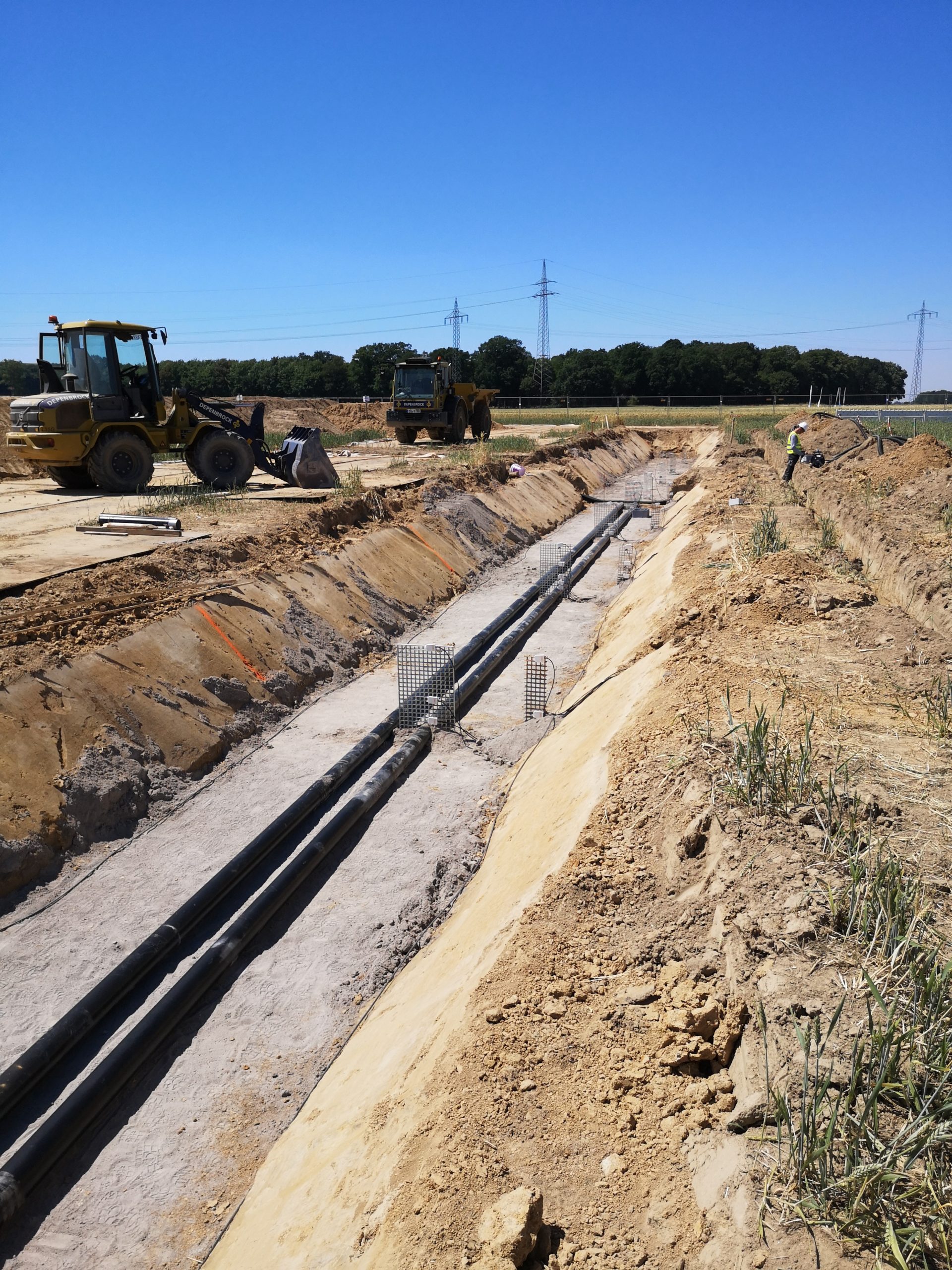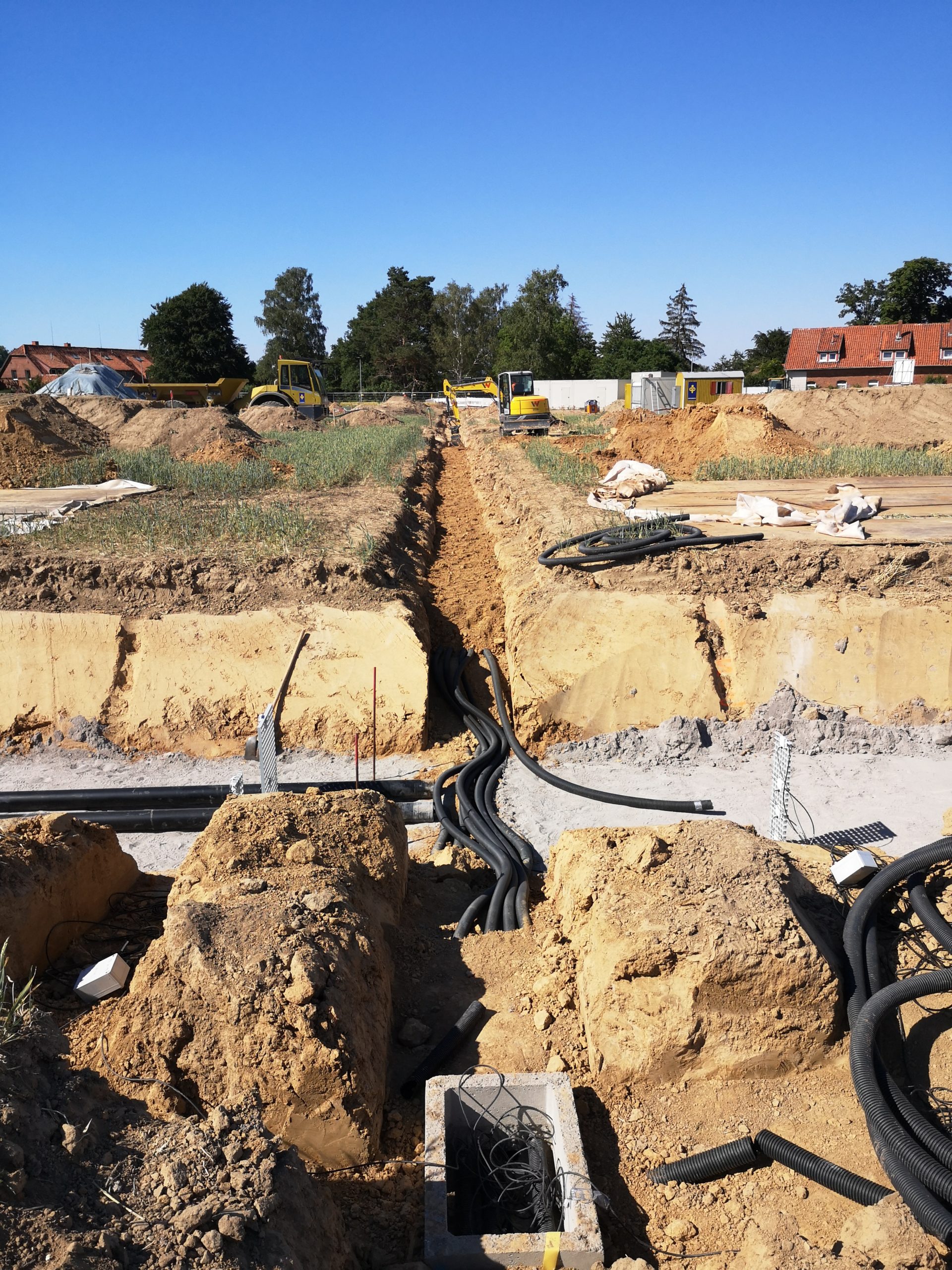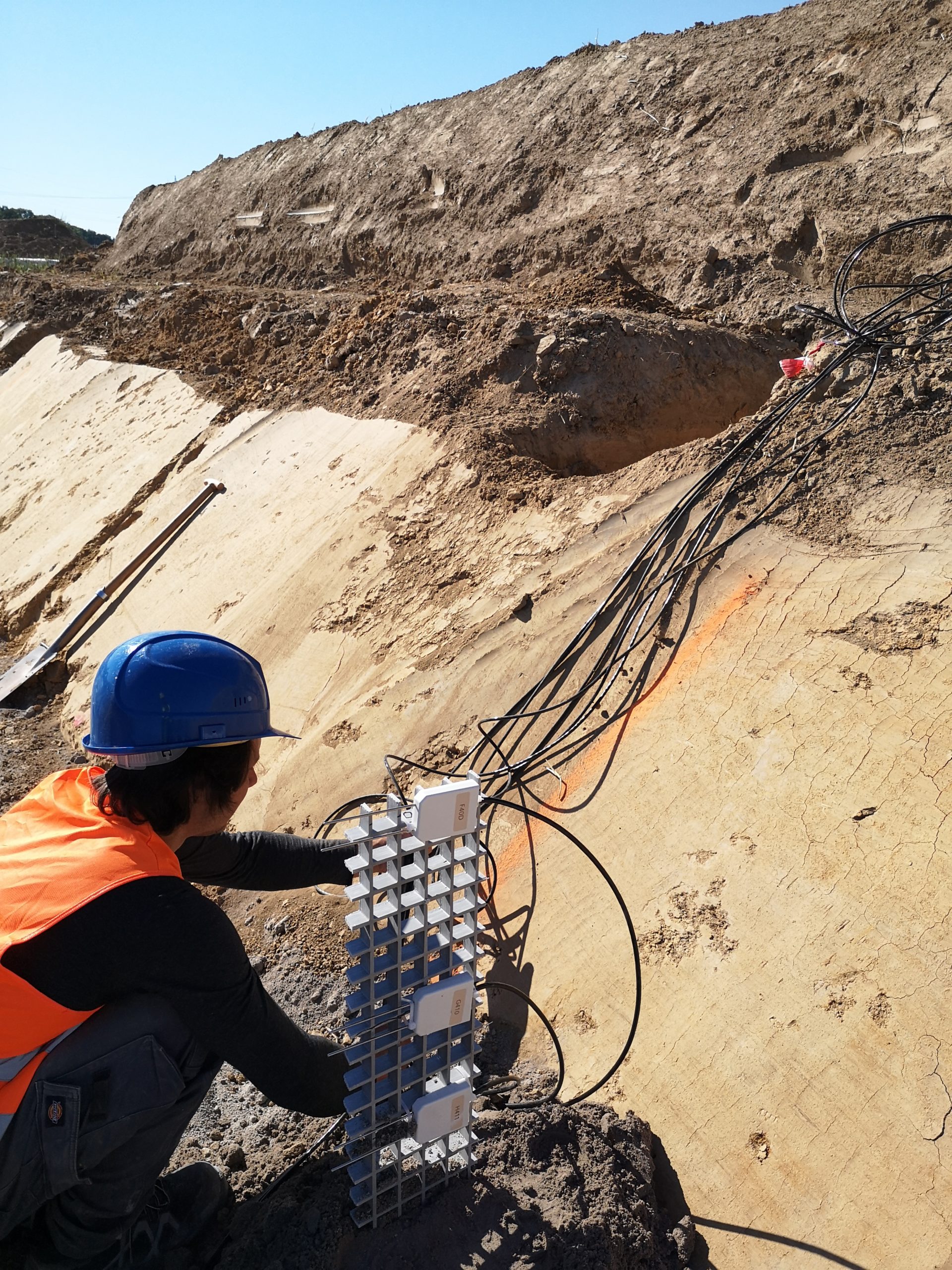Scientific monitoring and field investigations on 3 test fields for HVDC underground cables
With a transmission capacity of four gigawatts and its length, the SuedLink, which connects the windy regions of northern Germany with southern Germany, is currently the largest infrastructure project of the energy transition in Germany. The SuedLink project is a cross-border grid expansion project in which high-voltage direct current transmission lines (HVDC) from Brunsbüttel and Wilster (both Schleswig-Holstein) to Großgartach near Heilbronn (Baden-Württemberg) and to Bergrheinfeld (Bavaria) are to be built as underground cables over approx. 700 km.
As part of the SuedLink project, several underground cable test fields are planned in order to shed light on the interactions between 525-kilovolt direct current earth cables and the ground environment and agriculture and plant growth, with the help of scientific investigations. The AG Oberflächennahe Geothermie of the Department of Geology at Friedrich-Alexander-Universität (FAU) Erlangen-Nürnberg is in charge of the scientific monitoring of the three test fields in the northern SuedLink asset for TenneT TSO GmbH. Within the framework of this project, an experimental design and a sensor concept have been developed together with partners from universities and industry. These investigations will take place with the involvement of farmers on agricultural land along the SuedLink route over a period of four years. The aim is to record and evaluate the effects of cable operation and the construction work of the underground cable installation on soil functions, the regeneration of soil structure, on crops and agricultural yields, as well as on geothermal conditions in the area of the cable trench.
For the purposes of the scientific monitoring of the field investigations, three main areas of investigation are being dealt with in an interdisciplinary manner. The Soil Biophysics working group of Leibniz Universität Hannover is focusing on soil functions and soil regeneration, the Plant Nutrition and Soil Science working group at Kiel University of Applied Sciences focuses on agricultural aspects and plant growth, and the Shallow Geothermal Energy working group of Friedrich Alexander University (FAU) Erlangen-Nuremberg is focusing on heat transport in the soil. The team is expanded by the institute of electrical engineering of the Dresden University of Applied Sciences with a heating ball test for temperature investigations in the near-cable area, by bioltec systems GmbH with the installation of comprehensive measurement sensor technology and transmission technology on the test areas, by AGVOLUTION GmbH with sensor technology that can be used close to the surface and the collection of weather data, and by Consolinno Energy GmbH, which operates the data management in the back-end and is responsible for programming a data portal.
This year, the construction measures for the creation of the three test sites are to be carried out. The groundbreaking ceremony for the construction of the first test field took place at the beginning of May in the presence of Lower Saxony’s Prime Minister S. Weil. In the meantime, the first construction measure has been completed and the sensors are in the ground. This means that monitoring has begun on the trial site.



Further information
GeoZentrum NordbayernHans Schwarz, M. Sc.
Chair of Geology (Prof. Dr. Stollhofen)
